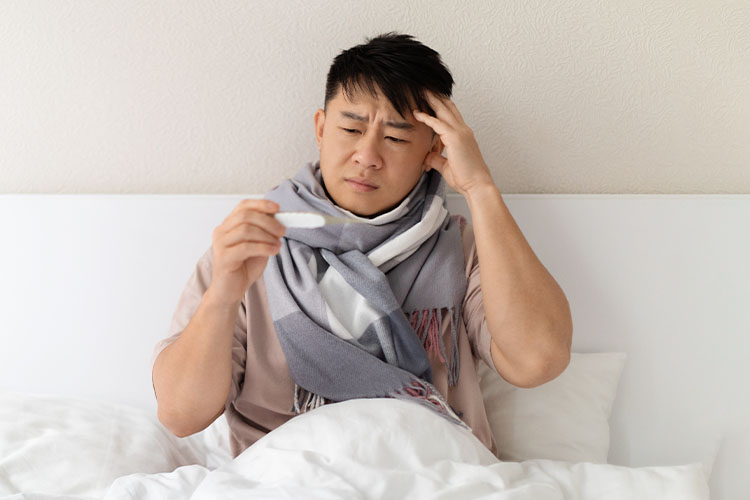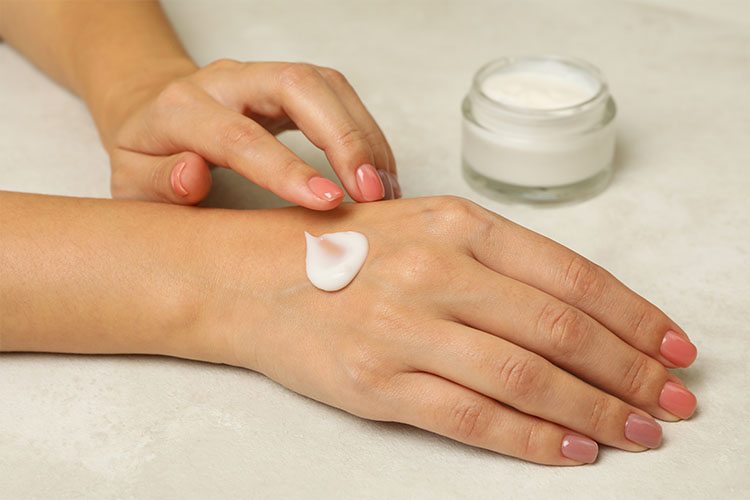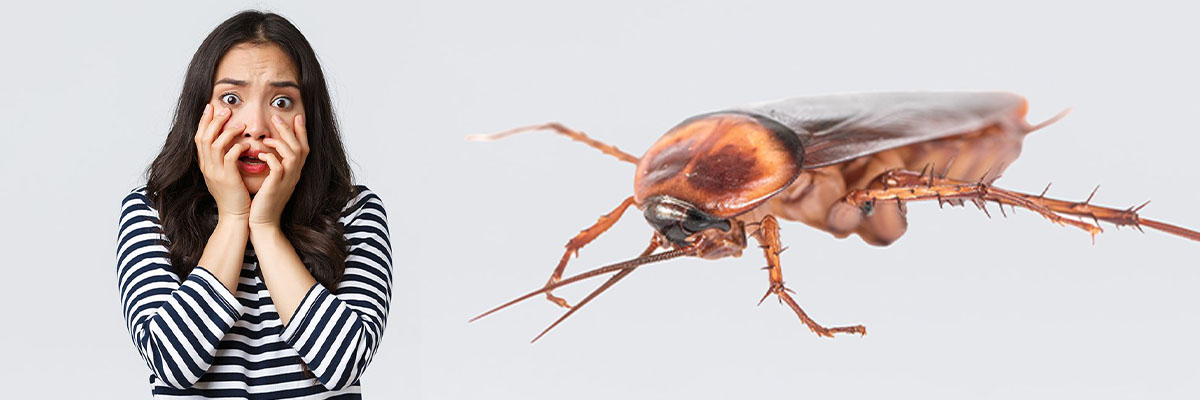Overview
Cockroach bites are a rare occurrence but can happen in environments where these pests are prevalent and food sources are limited. Cockroaches are nocturnal insects, and bites typically occur at night when the individual is asleep. The bites are often on exposed areas of the body, such as the hands, face, or feet, and can cause localized irritation. Although not common, cockroach bites can have effects that go beyond the initial discomfort.
The effects of a cockroach bite include redness, swelling, and itching at the bite site. In some cases, the bite may cause a mild allergic reaction, leading to more intense itching or a rash. Cockroach saliva contains proteins that may trigger an allergic response in sensitive individuals. Additionally, since cockroaches are carriers of bacteria and pathogens, their bites may introduce harmful microbes into the skin, potentially leading to infections if not properly treated.
Treatment for cockroach bites focuses on alleviating symptoms and preventing secondary infections. Washing the affected area with soap and water is the first step to reduce the risk of infection. Over-the-counter antihistamines or hydrocortisone creams can help relieve itching and inflammation. If the bite becomes infected or causes a severe allergic reaction, consulting a healthcare professional is necessary for antibiotics or other treatments. Applying a cold compress can also help reduce swelling and provide temporary relief.
Preventing cockroach bites involves eliminating the source of the infestation. Proper hygiene, regular cleaning, sealing entry points, and using pest control measures can significantly reduce the risk of exposure to cockroaches. Addressing the root cause of the infestation is key to ensuring a safe and healthy living environment while minimizing the chances of bites or other cockroach-related issues.
Table of Contents
When to See a Doctor
While cockroach bites are typically mild and manageable at home, there are situations where seeking medical attention is essential to prevent complications. Consulting a healthcare professional ensures proper care for severe or unusual symptoms associated with the bite.

Signs to see a doctor:
- Signs of infection. If the bite becomes red, swollen, warm to the touch, or starts oozing pus, it may be infected and require medical evaluation. Antibiotics might be necessary to treat the infection effectively.
- Severe allergic reactions. If you experience intense itching, widespread rashes, difficulty breathing, or swelling in areas beyond the bite site, it could indicate an allergic reaction that needs immediate attention.
- Persistent or worsening symptoms. If redness, swelling, or pain around the bite site does not improve after a few days or worsens, it is advisable to consult a doctor.
- Systemic symptoms. Fever, chills, or swollen lymph nodes following a cockroach bite may suggest that bacteria or other pathogens have entered the body, requiring professional medical care.
- High-risk individuals. People with weakened immune systems, such as the elderly, young children, or those with underlying health conditions, should seek medical advice even for mild symptoms to avoid complications.
Timely medical intervention can help address any complications from cockroach bites and ensure a smooth recovery. It’s always better to err on the side of caution and consult a professional if you are unsure about your symptoms.
What Type of Doctor to Seek
If you experience symptoms from a cockroach bite that require medical attention, your first point of contact should be a primary care physician or a general practitioner. They can assess the severity of your symptoms, evaluate the bite site for signs of infection or allergic reactions, and recommend appropriate treatments such as topical creams, antihistamines, or antibiotics. For most cases, a primary care physician will be able to manage the condition effectively.
If the reaction to the bite is more severe, such as a significant allergic response or persistent skin issues, you may be referred to a dermatologist. Dermatologists specialize in skin conditions and can provide advanced care for rashes, swelling, or infections caused by the bite. In rare cases of severe allergic reactions, an allergist may also be consulted to address underlying sensitivities or immune responses triggered by the cockroach saliva. Seeking the right specialist ensures proper treatment and minimizes the risk of complications.
What to Expect from Your Visit to a Doctor
When visiting a doctor for a cockroach bite, you can expect a detailed evaluation to determine the severity of the reaction and ensure proper treatment. The doctor will begin by asking about your symptoms, including when the bite occurred, any changes in the affected area, and whether you’ve experienced additional symptoms like fever, swelling, or difficulty breathing. They may also ask about your medical history, including any allergies or skin sensitivities, to better understand your risk for complications.
The doctor will perform a physical examination of the bite site, looking for signs of infection, such as redness, warmth, or pus, or indications of an allergic reaction, like widespread rashes or swelling. Based on their findings, they may recommend treatments such as topical creams, oral antihistamines, or antibiotics if an infection is present. For more severe cases, they might provide steroid medications or refer you to a specialist, such as a dermatologist or allergist. If needed, they may also discuss preventive measures to avoid future bites, such as pest control strategies or allergen management.
Cockroach Bite Treatment Options
Cockroach bites, while uncommon, can lead to allergic reactions, irritation, or even infections if left untreated. Acting quickly with proper care can alleviate symptoms and prevent complications. Below are recommended treatments for managing cockroach bites effectively, using a mix of home remedies and over-the-counter options.

Treatment Options for Cockroach Bites
- Wash the bite with soap and water. As soon as you notice a cockroach bite, wash the area thoroughly with soap and clean water. This removes dirt and bacteria, reducing the risk of infection and soothing initial irritation.
- Apply an antiseptic. After cleaning, apply an antiseptic solution to the bite area to kill bacteria and prevent infections. Common household options include rubbing alcohol or hydrogen peroxide. Hydrogen peroxide can lift dirt and bacteria from the skin as it bubbles upon application. Baking soda paste (a mix of equal parts baking soda and vinegar) is another effective alternative, thanks to its anti-inflammatory and antiseptic properties.
- Use ice packs to reduce swelling. If the bite causes itching or swelling, apply an ice pack to the affected area. Wrap the ice in a thin towel or place it in a plastic bag to prevent frostbite. Repeat this process several times a day to ease discomfort and reduce inflammation.
- Use over-the-counter creams and medications. If initial remedies are insufficient, over-the-counter (OTC) hydrocortisone creams or insect bite treatments can reduce itching and swelling. For allergic reactions, OTC antihistamines, available in pill or topical forms, can provide relief by countering the body’s histamine response.
Cockroach bites are generally not dangerous and typically heal on their own with proper care. However, it is important to seek medical attention if severe reactions occur, such as difficulty breathing, swelling of the lips, tongue, or throat, dizziness, widespread hives, stomach pain, or vomiting. These symptoms may indicate a more serious allergic reaction that requires immediate treatment.
Cockroach Bite Prognosis
The prognosis for cockroach bites is generally favorable, especially with prompt treatment. Most bites heal within a few days to a week with minimal intervention. Below is an overview of the expected outcomes for each treatment option.
- Washing the bite with soap and water. Thorough cleaning reduces the risk of infection and soothes the skin, ensuring faster healing and preventing complications.
- Applying antiseptic. Using antiseptics like rubbing alcohol or hydrogen peroxide helps eliminate bacteria and keeps the bite clean, significantly reducing the chance of infections and promoting quicker recovery.
- Using ice packs. Applying ice effectively reduces swelling and itching, providing immediate relief and minimizing discomfort during the healing process.
- Using over-the-counter creams and medications. Hydrocortisone creams and antihistamines effectively manage itching, swelling, and allergic reactions. These remedies offer quick symptom relief and are particularly helpful for moderate to severe bites.
With proper treatment, cockroach bites typically heal without complications. Adhering to these remedies and monitoring the bite site ensures a smooth recovery. If symptoms persist or worsen, seeking medical advice is key to addressing any underlying issues.


